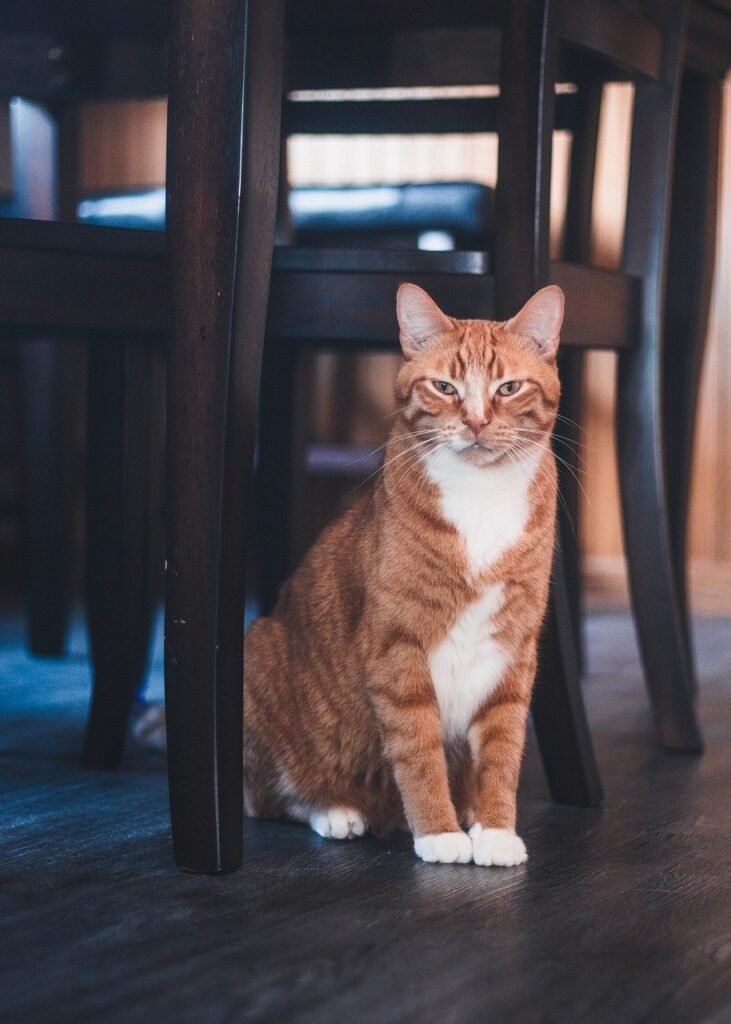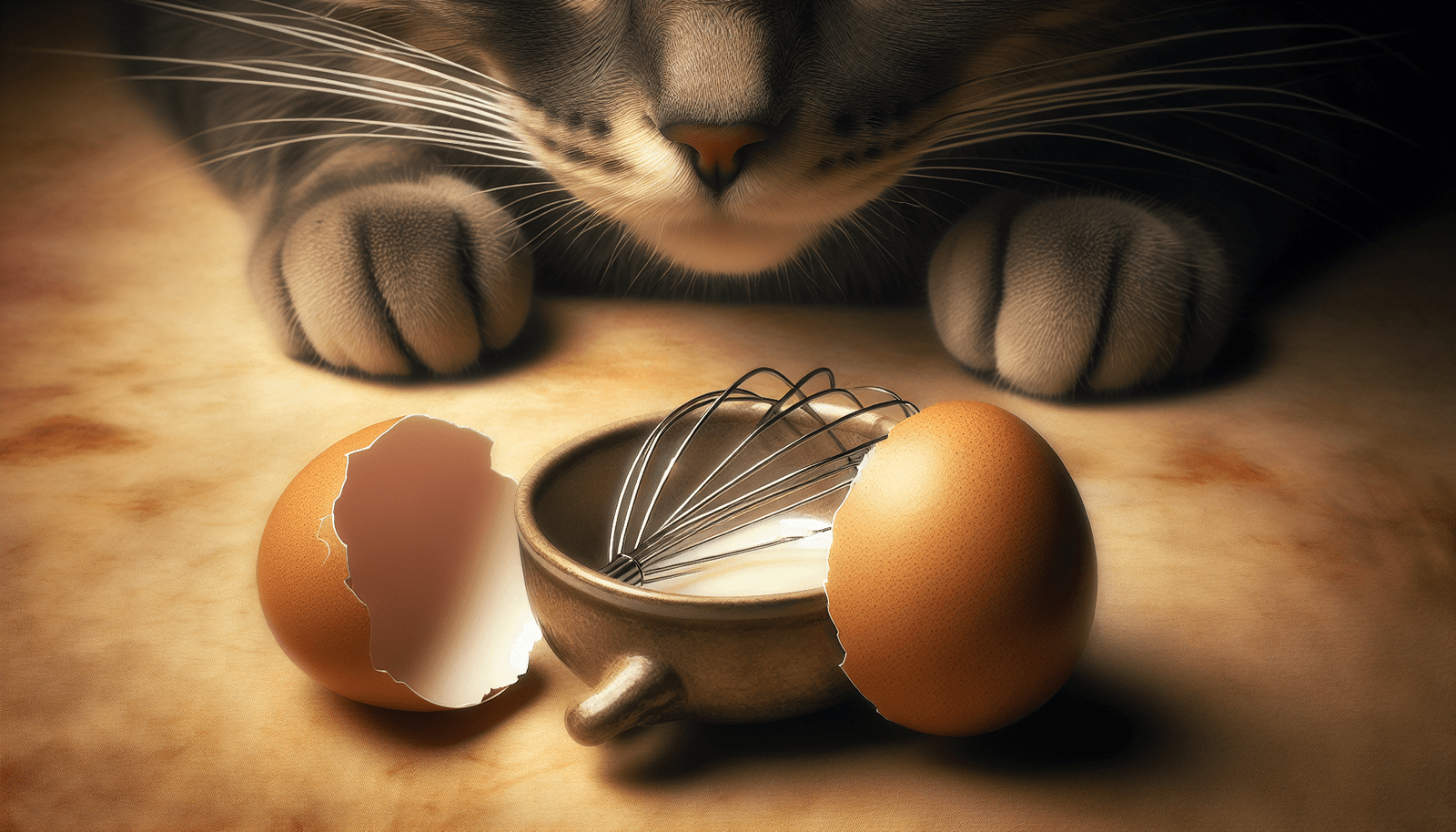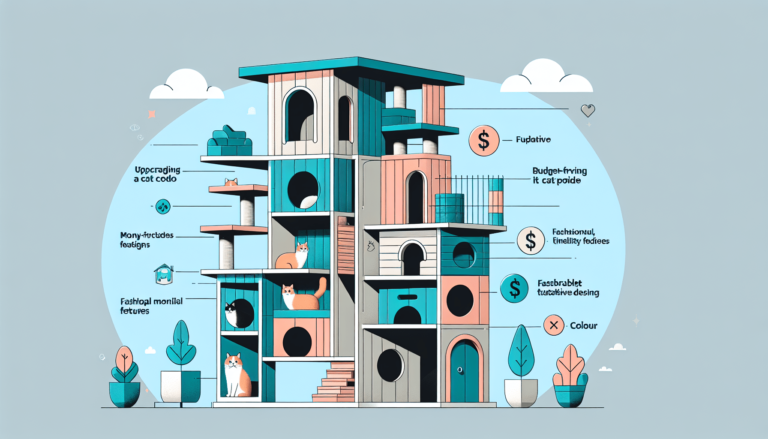Are Eggs Good For Cats
Hello there! If you’re wondering whether eggs are good for your feline friend, you’ve come to the right place. Eggs can actually be a healthy and beneficial addition to your cat’s diet when fed in moderation. From providing a great source of protein to offering essential nutrients, eggs may just be the purrfect treat for your beloved kitty. Let’s dive in and explore the ins and outs of including eggs in your cat’s diet!
Are Eggs Good For Cats?
Have you ever wondered if it’s safe to feed your feline friend eggs? You may have heard conflicting opinions on whether eggs are beneficial or harmful to cats. Let’s delve into the topic of whether eggs are good for cats and explore the potential benefits and risks associated with adding this protein-rich food to your cat’s diet.
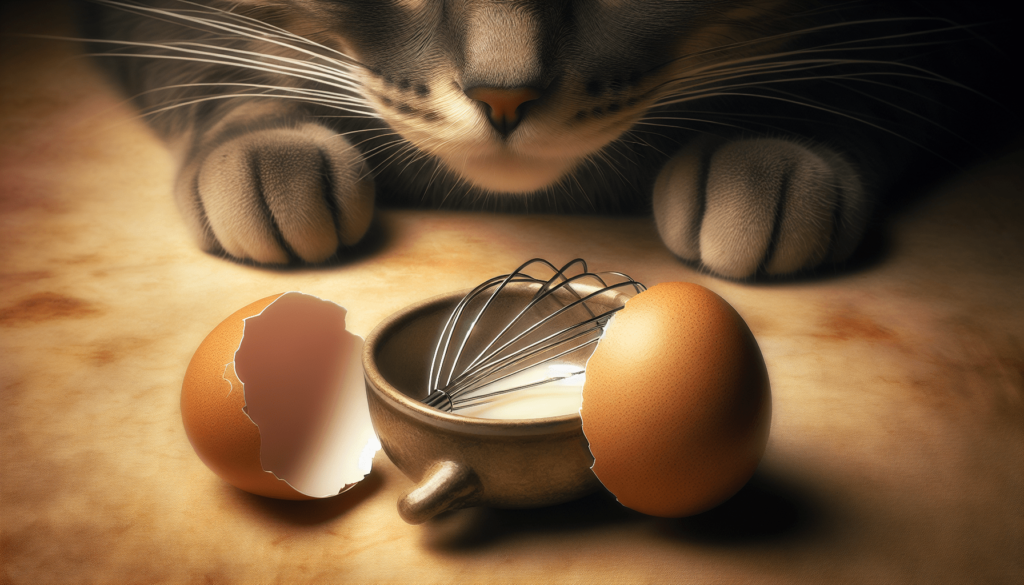
Can Cats Eat Eggs?
Before diving into the specifics of whether eggs are good for cats, let’s establish whether it’s safe for cats to consume this popular breakfast food. The good news is that eggs are generally safe for cats to eat in moderation. Eggs are a great source of high-quality protein and essential nutrients that can contribute to a balanced feline diet.
Cats and Protein
Cats are obligate carnivores, which means they require a diet high in animal-derived protein to thrive. Protein is crucial for cats as it helps support healthy muscles, organs, and immune function. Eggs are an excellent source of complete protein, containing all the essential amino acids that cats need to stay healthy.
Adding eggs to your cat’s diet can help ensure they’re getting an adequate amount of protein to support their overall well-being. However, it’s essential to feed eggs to your cat in moderation and as part of a balanced diet to avoid potential health issues.
Benefits of Feeding Cats Eggs
Now that we know eggs are safe for cats to eat in moderation, let’s explore the potential benefits of adding this nutritious food to your cat’s diet. From promoting a healthy coat to supporting muscle growth, eggs can offer several advantages for your feline companion.
Healthy Coat
Eggs are rich in biotin, a B-vitamin that plays a crucial role in maintaining healthy skin and coat. Adding eggs to your cat’s diet can help improve the condition of their fur, making it softer, shinier, and less prone to dryness or matting. If your cat has a dull or lackluster coat, incorporating eggs into their meals may help enhance the overall appearance and texture of their fur.
Muscle Growth and Repair
Protein is essential for muscle growth and repair in cats, especially for active or athletic felines. Eggs are a great source of high-quality protein that can help support muscle development and recovery in cats. If your cat is highly active or engages in physical activities like hunting or climbing, adding eggs to their diet can provide the necessary protein to fuel their muscles and keep them strong and agile.
Weight Management
Maintaining a healthy weight is crucial for cats to prevent obesity-related health issues like diabetes, joint problems, and heart disease. Eggs are a low-calorie, nutrient-dense food that can help cats feel full and satisfied without overeating. If your cat struggles with weight management or tends to overindulge in high-calorie treats, incorporating eggs into their diet as a healthy snack or meal topper can help them maintain a healthy weight.
Increased Energy Levels
Eggs are a rich source of vitamins and minerals that can provide an energy boost for your cat. The high protein content in eggs can help cats feel more energetic, alert, and active throughout the day. If your cat seems lethargic or low on energy, offering them a small serving of eggs as a treat can help revitalize them and improve their overall vitality.
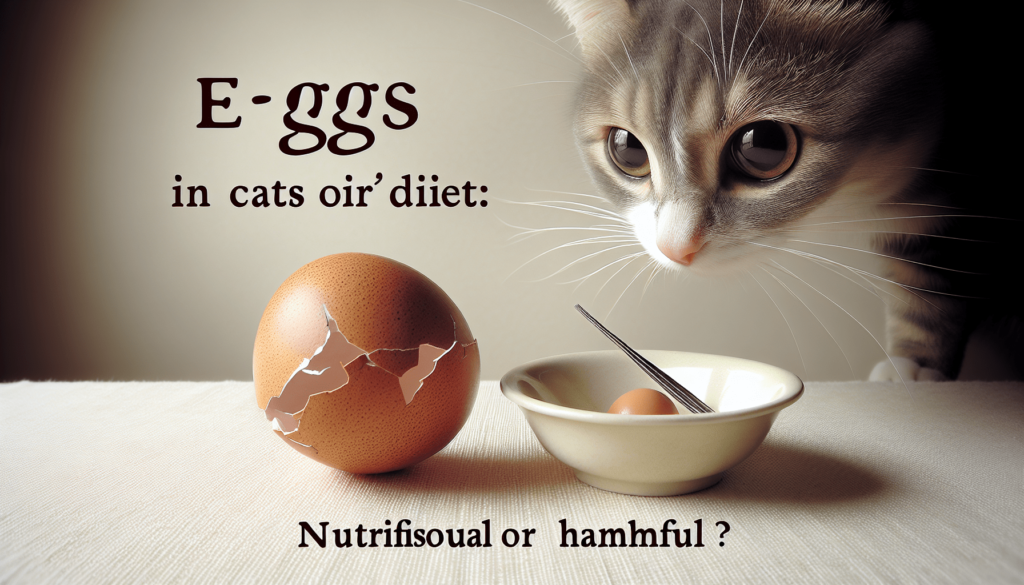
Risks and Considerations
While eggs offer several benefits for cats, there are some risks and considerations to keep in mind when feeding this food to your feline friend. From potential allergies to the risk of salmonella contamination, it’s essential to be aware of the drawbacks of feeding eggs to cats and take necessary precautions to ensure their safety and well-being.
Allergies
Some cats may have allergies or intolerances to eggs, resulting in digestive issues like vomiting, diarrhea, or stomach upset. If you suspect your cat is allergic to eggs or notice any adverse reactions after feeding them this food, it’s essential to consult with your veterinarian. Your vet can help diagnose and manage potential food allergies in your cat and recommend suitable alternatives to eggs in their diet.
Raw Eggs
Feeding raw eggs to cats can pose a risk of salmonella contamination, a bacterial infection that can cause severe illness in cats. Raw eggs may also contain avidin, a protein that can interfere with biotin absorption in cats and lead to biotin deficiency over time. To reduce the risk of salmonella and other foodborne illnesses, it’s crucial to cook eggs thoroughly before feeding them to your cat.
High Cholesterol
Eggs are high in cholesterol, which may not be suitable for cats with underlying health conditions like heart disease or obesity. Feeding eggs to cats in large quantities or as a primary source of protein can lead to elevated cholesterol levels and increase the risk of cardiovascular issues. If your cat has a history of heart problems or high cholesterol, it’s best to consult with your veterinarian before adding eggs to their diet.
Moderation
While eggs can be a nutritious addition to your cat’s diet, it’s essential to feed them in moderation to avoid potential health risks. Excessive consumption of eggs can lead to dietary imbalances, digestive issues, or nutrient toxicity in cats. As a general guideline, limit your cat’s egg intake to a small portion a few times a week to prevent overfeeding and ensure their diet remains balanced and varied.
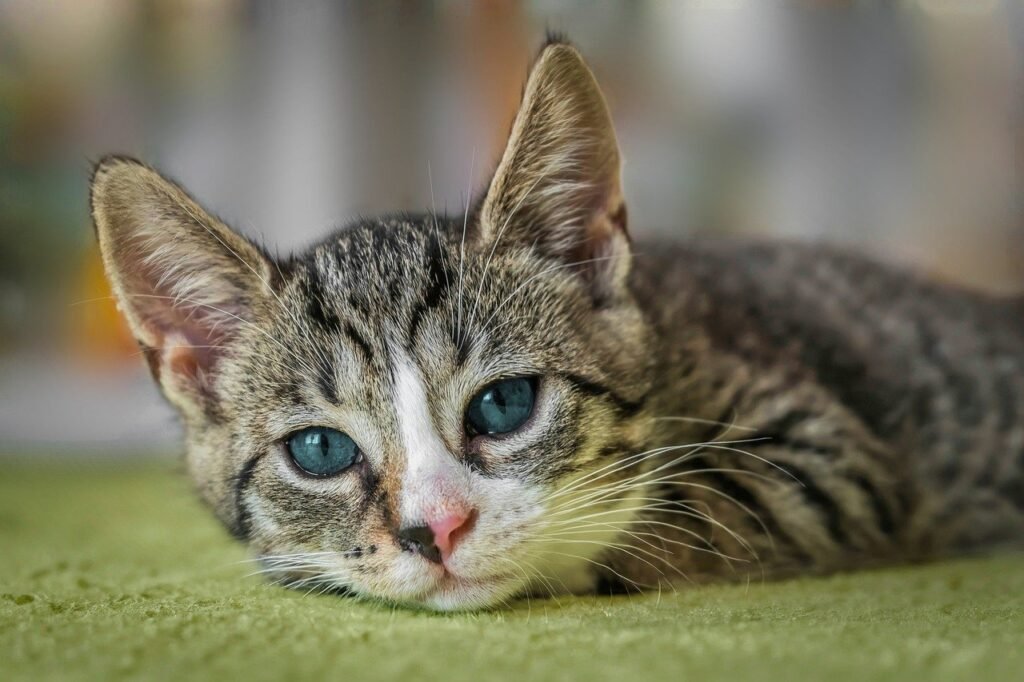
How to Feed Eggs to Cats
Now that we’ve covered the benefits, risks, and considerations of feeding eggs to cats, let’s discuss how to incorporate this nutritious food into your feline companion’s diet. From scrambled eggs to egg toppers, there are several ways to serve eggs to your cat while ensuring they receive the maximum nutritional benefits without any potential risks.
Cooked Eggs
Cooked eggs are the safest and easiest way to feed this food to your cat. Scrambled eggs, hard-boiled eggs, or omelets are popular options that can be easily prepared and served to your feline friend. Make sure to cook eggs thoroughly to eliminate the risk of salmonella contamination and enhance digestibility for cats. Avoid seasoning eggs with salt, pepper, or spices as these additives can be harmful to cats.
Egg Toppers
If your cat is a picky eater or prefers dry kibble over wet food, you can use egg toppers to entice them to eat. Simply crack a raw egg over your cat’s food bowl and mix it in with their kibble or wet food. The aroma and taste of the egg can enhance the flavor of the meal and make it more appealing to your cat. Remember to handle raw eggs safely and refrigerate any leftovers to prevent spoilage.
Egg Treats
Egg treats are a quick and convenient way to reward your cat while providing them with added nutrients. You can make homemade egg treats by baking or dehydrating eggs until they’re crispy and crunchy. Cut the egg treats into small, bite-sized pieces that are easy for your cat to eat and enjoy as a special snack or training reward. Store the treats in an airtight container to maintain freshness and quality.

Conclusion
In conclusion, eggs can be a nutritious and beneficial addition to your cat’s diet when fed in moderation and with proper precautions. From promoting a healthy coat to supporting muscle growth, eggs offer several advantages for cats that can enhance their overall health and well-being. However, it’s crucial to be aware of the potential risks and considerations associated with feeding eggs to cats, such as allergies, salmonella contamination, and high cholesterol levels.
By following the guidelines and recommendations outlined in this article, you can safely incorporate eggs into your cat’s diet and provide them with the essential nutrients they need to thrive. Remember to consult with your veterinarian before making any significant changes to your cat’s diet and monitor their health and well-being for any signs of adverse reactions. With proper care and attention, you can ensure that your cat enjoys the benefits of eggs while maintaining a healthy and balanced diet.
